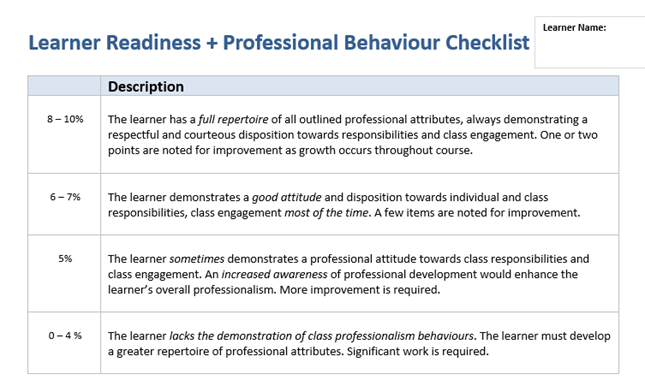Learner Behavioral Checklist

Participation marks are controversial in post-secondary education are often controversial due to their subjective nature for both students and instructors. Bain (2019) argues that instructors should view participation grades as opportunities for “skill building “ opportunities and offers strategies to help manage this approach.
CTLI provides an alternative to traditional participation grades, building on Bain’s suggestions by encouraging students to self-assess their behavior on the classroom. The learner behavior checklist replaces instructor – observed participation, shifting responsibility and accountability for behavior to the students. This way, any deduction marks are made by the students themselves, not the instructor.
As Bain (2019) suggests, the checklist is provided at intervals throughout the semester, allowing students ample time to identify challenges and adjust. It also includes a section for reflection to promote metacognition.
CTLI has experience with the checklist – contact us for more information on implementation.
The checklist is provided here in a Word document, enabling instructors to customize descriptions and criteria. Alternatively, this can be done as a large group activity, involving students in setting the criteria in the early part of the semester.